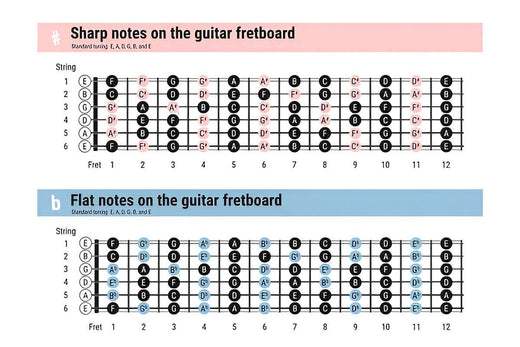There are so many myths about guitar strings, with players always debating whether thicker strings produce a better tone, whether coated strings sound worse than uncoated, what are the best brands and why, etc., etc.
So, let's address each of these common guitar string myths, in turn, and separate the fact from the fiction. I’ll get started with…
The Best String GaugeGuage for Electric Guitar
Stevie Ray Vaughan has become a legend not only because he was one of the greatest guitarists in history but also because of his incredible guitar tone.
He usually played a 1965 Fender Strat through a few Fender amps live - Super Reverb combos, Bassman heads and 4x12s, Bassman combos, a pair of Twins, and a Marshall Plexi 1959SLP (depending on the venue and his amps of choice at the time). For studio work, he used his trusty Dumble Steel String Stinger (which he also used live) or one of the other amps. He used a number of effects but his mainstay was an Ibanez TS808 Tube Screamer.
As for strings, he normally used 0.013 Guage. That’s mighty beefy, in fact, it’s thicker than the highest string in nearly any set of guitar strings currently available, with most brands only going up to a 0.012.
Did this add to his tone? Of course, it did, everything from his fingers to the strings, the guitar to the pedals, his choice of amps, and how he combined them had an effect on the tone. So, will playing a 0.013 set make you sound like SRV? Unfortunately no, as can be seen from the equipment listed above, it is only a small part of the whole tonal picture.
So, judging by Stevie’s awesome tone, the common myth that thicker strings sound better than thinner strings must be true? Well, let’s take a look at some other guitarists…
Billy Gibbons from ZZ Top is also a bonafide guitar hero, maybe not in the same league as SRV, but still a force to be reckoned with, especially tonally. Did he use thick strings? No, he uses incredibly thin strings, as thin as 0.007 - that’s just over half the thickness of Stevie Ray Vaughan’s high e-string. Another player who also uses super thin strings is Brian May, again renowned for his epic guitar tone.
In conclusion, there is no string gauge secret to great tone, it’s down to the player, how they play the instrument and the other equipment they use. The best way to get YOUR tone is to experiment, not only with different gauges but also with different brands and even different individual string gauges within the sets. Also, take into account the guitar you are playing (Gibson-style guitars can handle thicker strings than Fender-style guitars due to the shorter scale length) and the tuning you use (a dropped tuning may need thicker strings than if you play in standard tuning).
So, please don’t listen to ‘experienced’ players who tell you that a set of 11s is the only way to get the tone you want, it might be for them, but you might get your dream tone with a standard set of 9s.
If you want to take a deep dive into the subject, check out this excellent YouTube video where Rick Beato did a recorded direct comparison between string gauges to see which one sounded best. Spoiler alert - the 0.009 gauge won.
Next, let’s move on to…
Coated Electric Guitar Strings - Good or Bad?
Back in the good old days, there was only one type of string - a guitar string! Then manufacturers introduced the coated string to alleviate many of the problems with standard strings. But the more complex manufacturing process meant that coated strings cost a lot more than normal ones, so… are coated guitar strings worth the money?
Before I give you my opinion, let’s take a quick look at the pros of standard strings vs. coated strings…
Advantages of Uncoated Guitar Strings
- More affordable because they are cheaper to manufacture.
- Produce a more complex, brighter overall tone.
- Better sustain, letting notes and chords ring out for longer.
- Have more grip, making bends and vibrato easier.
- Easy to clean.
Advantages of Coated Guitar Strings
- Usable playing life is 2-5 times longer.
- Don’t get dull anywhere near as quickly as uncoated strings.
- Break less frequently.
- Softer on your fingertips, as well as on your frets and fretboard meaning less guitar maintenance.

Looking at it from a purely commercial standpoint, coated strings are the best option. Even though you are paying twice as much up front, the string might well last for three to four times longer, therefore halving your string costs.
But in terms of tone, to my ear, a set of uncoated strings sounds far better, especially two to three days after being placed on a guitar.
Therefore, if tone is important to you - such as recording guitarists, those who play a lot of concerts, or you just hate it when your guitar doesn't sound as good as it can, then stick with uncoated strings. But if your tonal ear hasn’t developed yet, then maybe the financial savings offered by coated strings are worth it. However, if your musical ear is still developing, you might also be happy with your slightly dull-sounding older standard strings, especially if you clean them regularly.
And finally, which brand of electric guitar string should you buy?
I’m afraid there isn’t a simple answer to this, it’s the same as the what string gauge question, try the most popular brands - Ernie Ball, D’Addario, Rotosond, GHS, etc. - one at a time and see which one one feels the most comfortable when you are playing.
But remember that a certain brand of strings may feel different on various guitars, especially if you own electric and acoustic guitars. I use 0.009 Ernie Ball Super Slinkys on most of my electric guitars (both Gibson and Fender scale), but I use 10.5s on my PRS. It came with 10.5s and plays fantastically with them, so there is no reason to change the gauge.
Wrapping it Up
We’ve come to the end of this installment of Guitar String Mythbusters. The guitar is such a diverse instrument that can be played in so many ways, plus the choice of guitars, strings, pedals, amps, etc. is so vast that it is impossible to ‘get the tone you want’ by just copying your hero's string gauge, or even their entire rig for that matter.
Try out different sets of strings, and compare them to the last set you had as best you can. Do they sound better, are they smoother to play, is bending notes easier on them? If so, forget the earlier brand and string gauge. Keep doing this until you find a set that works underneath your fingertips. And once you find it, stick with it, I’ve been using the same brand and gauge for the last 40-odd years - as mentioned, they are a set of bog standard 0.009 Ernie Ball Super Slinkys - they work perfectly for me.
If you like this article, please share it!
Be sure to join our FB Group Guyker Guitar Parts VIP Group to share your ideas! You can also have connections with like-minded guitar players, Guyker updates as well as discounts information from our FB Group.








